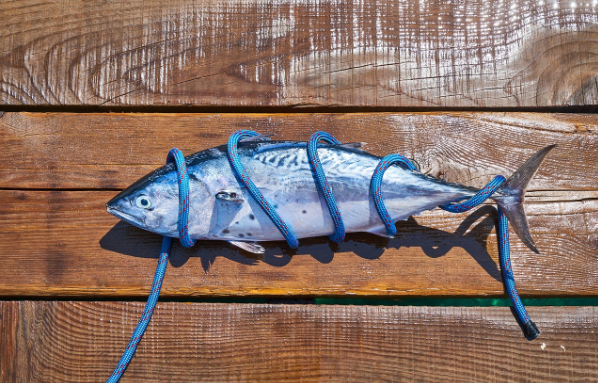Malta’s aquaculture industry plays a crucial role in the country’s economy, contributing around 1% to its GDP. Bluefin tuna farming is the centrepiece of this industry, with most of the production exported to Asia. In addition to bluefin tuna, other species like sea bass, sea bream, and amberjack are also farmed and exported from Malta.
Bluefin Tuna: The Flagship of Maltese fish farms
Malta has a strong focus on bluefin tuna farming. Tuna are caught in the wild and then fattened in large sea cages near the coast, especially visible on Malta boat tours around the northern part of the island. These fish are fed a high-calorie diet of smaller fish like anchovies and mackerel to help them gain weight. Malta is known as the largest bluefin tuna producer in the Mediterranean, with local companies producing thousands of tons of tuna every year.
Export and global demand
Despite Malta’s large production of bluefin tuna, the country consumes very little of it. Nearly all the tuna is exported, primarily to Japan, where the fish is highly valued for sushi and sashimi. The price of bluefin tuna can reach up to €35 per kilo, making it a highly profitable business for Malta, despite the high operational costs involved in managing fish farms.
Other farmed species
Apart from bluefin tuna, Malta also operates closed-cycle fish farms for species like sea bass, sea bream, and amberjack. These species are bred and raised entirely in controlled environments, from hatching to harvest. This method is more environmentally friendly since it reduces the need for wild fish stocks, making the farming process less damaging to the environment.
Environmental issues
While fish farming is important for Malta’s economy, it also raises environmental concerns. One major issue is water pollution, caused by the large amounts of feed and waste that enter the sea from the fish farms. This pollution can sometimes affect tourist areas, especially in the southern bays of Gozo. Additionally, the accumulation of sea slime from fish farms can harm nearby ecosystems, emphasizing the need for stricter environmental regulations.
Innovations
To tackle these challenges, Malta is working towards making its fish farming industry more sustainable. Researchers are developing new types of feed that rely less on wild-caught fish and use more plant-based proteins. New environmental laws aim to regulate fish farms more strictly, with the goal of reducing pollution and protecting the biodiversity of the Mediterranean.
Additionally, bluefin tuna is increasingly being bred from eggs rather than being caught in the wild. This method reduces pressure on wild tuna populations and provides a more sustainable approach to tuna farming, ensuring the industry’s longevity.
Conclusion
Fish farming is a key component of Malta’s economy, with bluefin tuna being the most profitable species. However, the industry faces significant environmental challenges. Investments in innovative solutions, such as alternative fish feed and improved breeding programs, are essential to making Malta’s aquaculture more sustainable and preserving the marine environment around the islands for future generations.
To experience Malta’s impressive fish farms up close, book a Malta Boat Tour and sail past the giant tuna pens while enjoying the stunning views of the northern coast!

